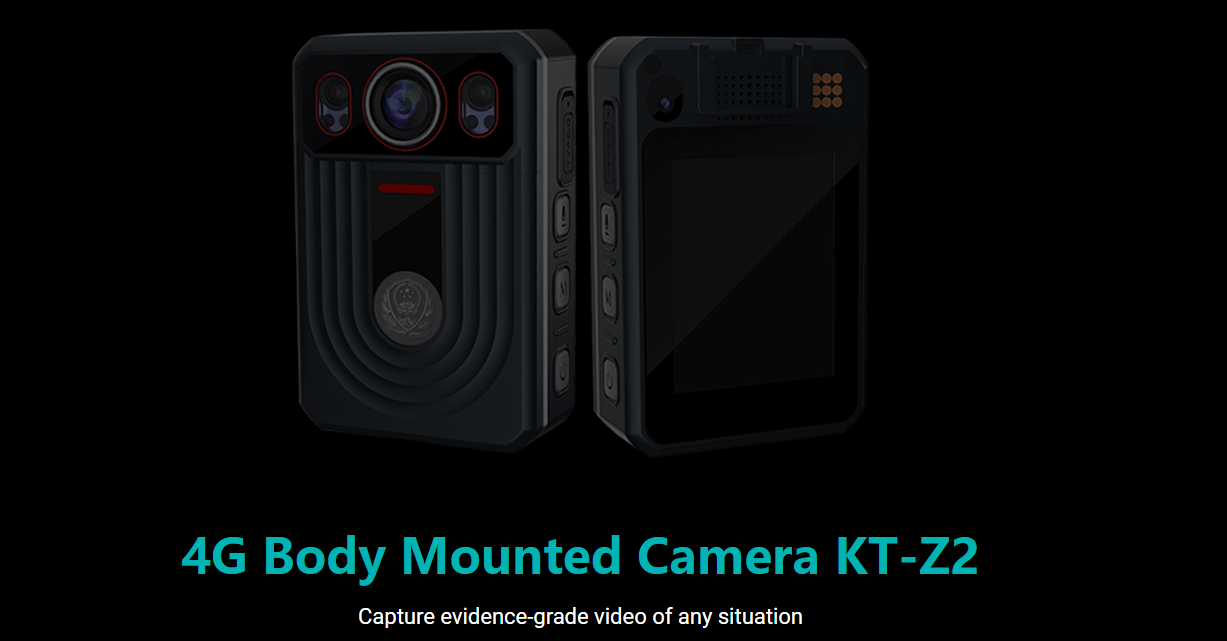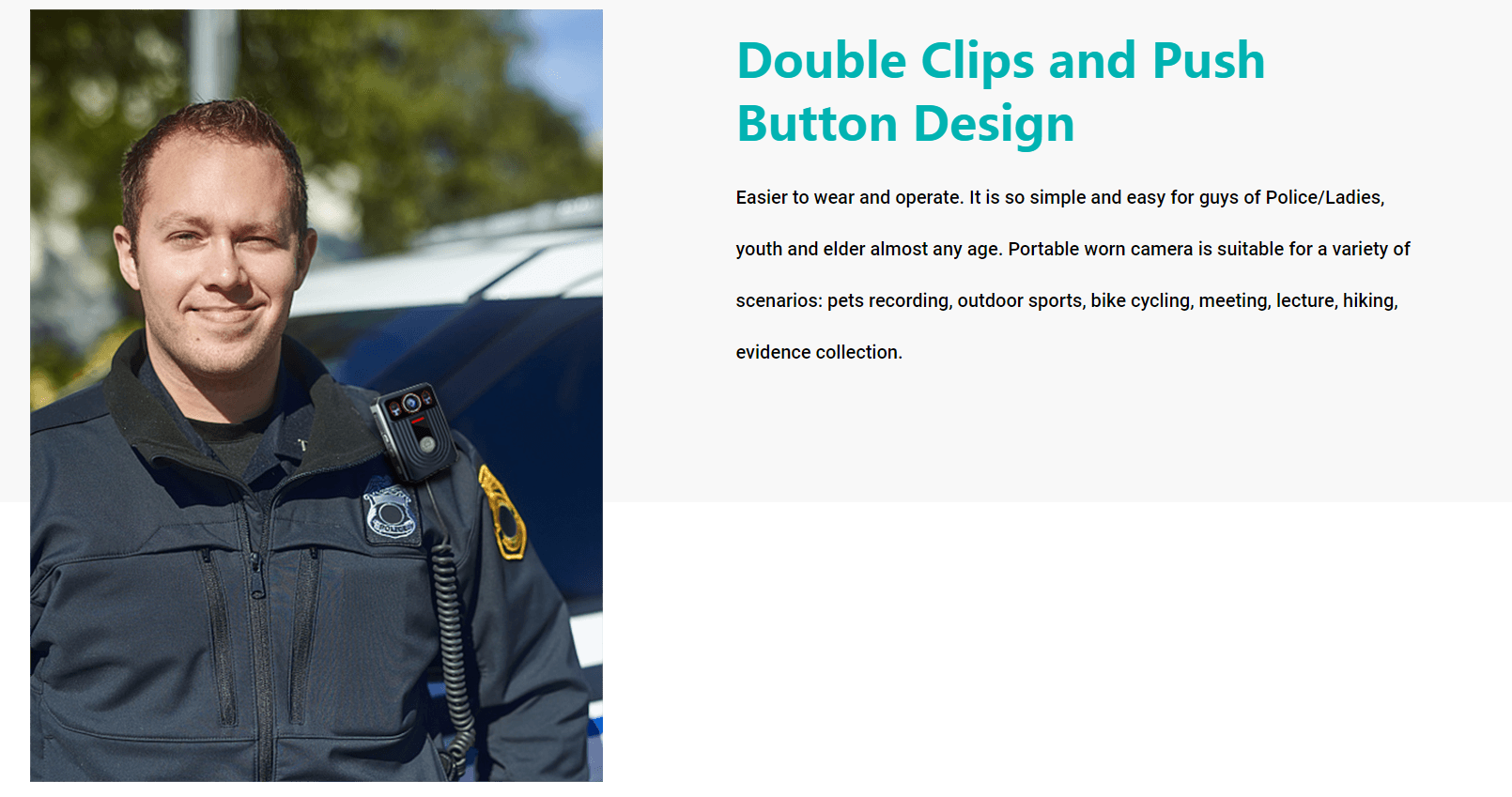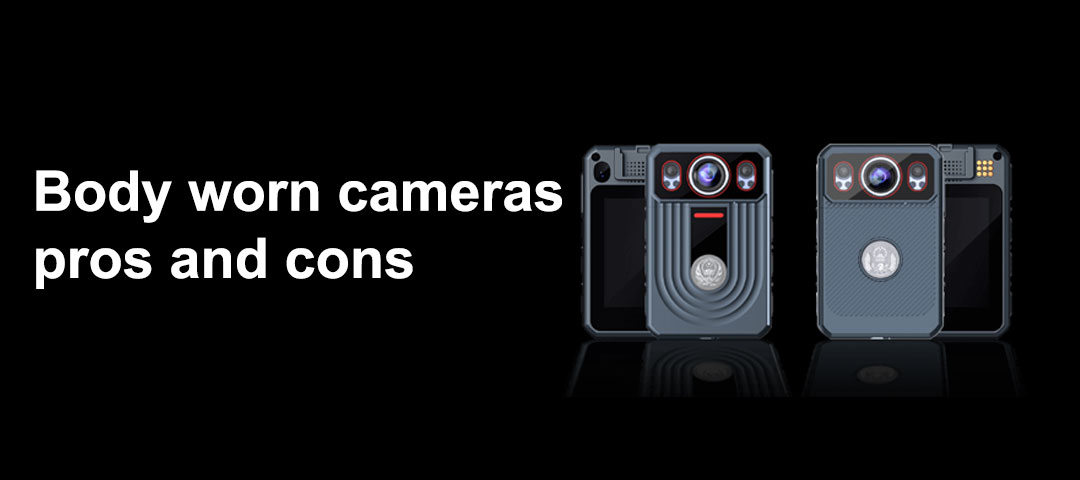Body worn cameras, also known as BWCs, have become a popular topic recently. There has been a rise in awareness surrounding police brutality and how our system is failing to protect the innocent. This became more noticeable after the tragic death of Michael Brown on August 9, 2014. BWCs are now being used by several police departments around the country and are considered standard issue for all officers in Houston and Denver, with other cities slowly following their lead.Body worn cameras are a great tool for law enforcement, and they're steadily becoming more popular. Some law enforcement agencies have already adopted them, and many more are considering doing so.Body worn cameras (BWC) are designed to protect both the officers and civilians from violence. However, even though body cameras can be excellent in many ways, there are some things that can still be improved. I'm here to discuss both Body worn cameras pros and cons to help make your decision making process easier.

Body worn cameras help gather evidence
Body worn cameras are the most effective way to gather evidence in a case, especially if it is a criminal case. The camera can record everything that happened during an incident, including audio and video. The footage can then be used as evidence in court to prove whether or not your client is innocent or guilty.They're an easy way to record what's going on around you, which is especially helpful when there's a dispute about what happened. The camera can capture video, audio, and still images of what happened, so you can have hard evidence if the situation goes to court.Body worn cameras have become a popular tool for police officers, but they're also useful in other situations.For example, if you're in a situation where there's a dispute between two parties, you can use body worn cameras to gather evidence of the incident. This can help resolve disputes in court and make sure that everyone involved is treated fairly.Body worn cameras are also useful when people file complaints against police officers or other individuals who work in law enforcement. The video footage will help determine whether any wrongdoing occurred and how best to proceed with any disciplinary action.This means that police departments will have more evidence against suspects who break the law, which makes it easier for them to convict those suspects and put them behind bars.Body worn cameras are one of the best ways to gather evidence. If you have a body worn camera on, it can capture whatever is happening at the time. This means that if you are ever accused of something, you can prove your innocence by showing what really happened.
Cameras promote safer interactions during police arrests
Body cameras are a great way for police officers to capture interactions during arrests, and they're also a great way for police officers to conduct their business with more accountability.Body-worn cameras have been shown to have a positive impact on interactions between police officers and citizens. In fact, the use of body-worn cameras has been shown to reduce the number of complaints against officers by as much as 88%.Officers who wear body cameras are more likely to be viewed positively by their communities, which can lead to better relationships between the community and law enforcement. This means less conflict in the streets and fewer complaints against an officer's conduct.When you have body cameras on, it's much harder for cops to lie about what took place during an arrest because they can't get away with their usual tactics (lying, changing their stories). Body cameras also help people feel safer when they know that they can trust the police—and sometimes this means that people will be more willing to cooperate with the police.Body-worn cameras have been shown to have a positive impact on interactions between police officers and citizens. In fact, the use of body-worn cameras has been shown to reduce the number of complaints against officers by as much as 88%.Officers who wear body cameras are more likely to be viewed positively by their communities, which can lead to better relationships between the community and law enforcement. This means less conflict in the streets and fewer complaints against an officer's conduct.

Cameras provide a record of police activity on the job
Body worn cameras provide a record of police activity on the job. They allow police officers to document their interactions with the public and provide an accurate account of what happened in any given situation. This is especially important when an officer is accused of misconduct or abuse. The cameras can also be used to improve training. If there's an incident involving an officer, the recording can be reviewed and used as part of training exercises to help officers learn from their mistakes and avoid repeating them in the future.Body worn cameras are a great way to keep track of police activity while they're on the job.Cameras provide a record of police activity on the job. This can help to protect against false claims and help to ensure that the police are acting appropriately. The cameras also provide an extra layer of protection for officers in case they are ever accused of misconduct.The cameras provide an unbiased record of what happened in any given situation, and they help protect officers from false accusations by civilians.Officers can review the footage after a call is over, and it can be used in court if necessary.
While body worn cameras can be helpful in some situations, there are also several drawbacks to using them:
Body worn cameras are costly
Body worn cameras are not cheap. They run into the thousands of dollars, and they require a lot of maintenance and upkeep to keep them running smoothly. And the costs can add up quickly. Depending on the model you buy, you may have to pay for their purchase and installation, which can be expensive. In addition to these costs, you'll also need to pay for the storage of the video footage because they are used in many areas of the law enforcement world. The cameras are used by police officers, but they can also be used by security guards, prison guards, and other law enforcement personnel. The camera is a valuable tool for these professions because it helps to protect both the officer and the person involved in a situation from any false claims or accusations. One of the biggest pros of body worn cameras is that they're more affordable than you might think. In fact, some of the best body worn camera kits can be purchased for under $50. That's right—you can get this amazing tool for less than what you'd pay for a night out on the town! And don't worry about whether or not your body is going to be able to handle the weight of your new purchase—many body worn camera kits are less than one pound in total weight, so they're not going to weigh you down when you're wearing them all day long.
Records could get into the wrong hands
Body worn cameras are great for police officers and civilians alike, but there are some cons to using them.One of the most common concerns about body worn cameras is that the recordings could get into the wrong hands. These videos can include sensitive information like names, addresses, and other identifying details. If these videos are released before they are supposed to be, it could compromise the privacy of everyone involved. This includes not just victims and perpetrators but also witnesses who may need protection from retaliation after their testimony.If an officer is involved in a situation where he or she uses force, and the footage is released to the public, it could be misinterpreted by people who aren't familiar with the context of the situation.For example, if an officer gets pulled over by another officer for speeding, and then reaches for his gun out of fear for his life because he thinks he's about to be shot at—but there are no bullets in his gun—that looks very different when seen through a body-worn camera than it does when you're just reading about it.
The cameras can be unreliable in all kinds of situations
Body-worn cameras are a great way to protect yourself against false accusations, but they can be unreliable in all kinds of situations.The first problem with body-worn cameras is that they're not always used properly. For example, if someone wearing the camera acts aggressively or aggressively towards other people, it's likely that those people will refuse to speak with them and won't even acknowledge their presence. This means that if the person wearing the camera wants to record an interaction, they'll have to do so from a distance—which makes it more difficult for them to get a good look at what's going on.Another issue with body-worn cameras is that they're vulnerable to tampering by criminals who want to get away with something. In fact, there have been cases where criminals have tampered with body-worn cameras before committing crimes so that they don't get caught on film!Although the cameras are supposed to record everything you see, the camera can sometimes stop recording or start recording late. This is especially true if you are using your body worn camera during an emergency or a stressful situation. The camera may also stop working if it gets too hot or too cold, or if something gets in front of it. They can be unreliable in a variety of situations. For example, if you’re wearing a body worn camera while you’re on a run, it may stop recording even though you still need to keep it on. It also might not record at all if there’s too much background noise or if you’re moving too fast.

Body worn cameras can erode privacy rights
Body worn cameras are becoming more common in law enforcement, and the technology is rapidly expanding to other areas, such as business and sports. But these cameras can have a negative effect on privacy rights if they are not used responsibly. The problem is that the footage captured by body worn cameras is often much more detailed than what a security camera captures, which may violate people's right to privacy. This is because some body worn cameras allow police officers to zoom in on faces or specific parts of a person's body, making it easier for them to identify someone who was not previously known to them.Privacy is an essential part of democracy, and body worn cameras have the potential to damage that privacy. Body worn cameras can be used in situations where there is a legitimate need for them, but they have also been used to invade the privacy of citizens. As more police forces use body worn cameras, it is important that we balance the benefits of these tools with their potential for harm.This is one of the most common arguments against body worn cameras. The argument is that police officers will be more likely to record civilians without their permission, and that this may cause them to stop doing things like walking down the street or interacting with other people in public.This is a valid concern, but it's not as big of a deal as it seems. First of all, body worn cameras are optional: officers don't have to turn them on if they don't want to. And second, most states require that officers use reasonable discretion when deciding whether or not to record someone. In other words, if an officer sees something happening and thinks a civilian might want their privacy protected from being recorded (like if they're talking with another person), then they're not required to record that interaction. Another issue with body worn cameras is that they're often used to capture interactions between police and citizens, which means that the people who have access to this footage can use it for all kinds of things—including identifying people who have been arrested but never charged with a crime.
Therefore, It's impossible to predict the long-term effects of body worn cameras pros and cons, or whether they will ultimately increase or decrease crime in a given area. However, the potential benefits are great enough that many police departments are using them—or considering their use—despite the short-term costs. This would suggest that there is a strong probability for future benefits to arise from the use of body worn cameras and that they may represent an overall net positive.








